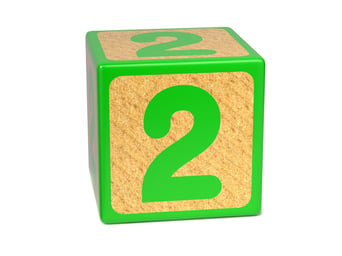
STEM Education Resources Teachers Actually Need in 2026
STEM brings together science, technology, engineering, and math in a connected way.
STEMscopes Staff | Published October 14, 2022
Research indicates that attitudes towards mathematics, especially at a young age, can significantly influence a child’s success in math. The good news is that there are simple strategies for introducing math concepts to play that can foster a positive attitude.

Teaching Math Through Play and Positivity
Mathematics is an essential component of STEM and indispensable for science, technology, and engineering. It is often used to uncover patterns in information. Patterns may be used to investigate relationships, draw broad conclusions from data, and interact meaningfully with real-world phenomena. Teaching young children to count is an essential first step to preparing them for more advanced mathematical ideas such as addition and subtraction. A positive attitude influences the brain’s memory region and predicts math performance irrespective of a child’s IQ.
Gardening & Math: An Effective Way to Foster Mathematical Learning
When talking to your child about their age, one way to start is to show the correct number of fingers. Additionally, parents can also help foster the right attitude while undertaking fun activities. For example, some math principles that children may learn and develop while gardening includes counting plants, calculating size, defining shape, identifying proportion, fractions, and multiplication (Digitale, 2018). Young children can count the number of tomatoes they see, while older children can solve problems like calculating how much to charge when selling tomatoes to make a profit.
Applying Mathematics to Everyday Life
One of the things that makes math such a powerful tool and an essential skill for a successful life is its universality. Math is all around us. The laws of mathematics may be found all around the universe, even in nature, and the problem-solving skills learned via math assignments can be applied to everyday circumstances. While many people complain that mathematics is boring or difficult, the fact is that without math, we would have a far less exciting view of the world.
How Play Can Impact Learning Math
Young children’s arithmetic experiences rely heavily on how they play and the natural links between their everyday activities, interests, queries, and mathematics. These daily activities, if connected to mathematics by attentive adults, serve as the foundation for subsequent mathematical study. Children with these experiences can expand on these ideas and develop a deeper understanding when they encounter similar experiences.
Play does not guarantee mathematical growth but provides plenty of opportunities for mathematics learning if one pays attention. When teachers engage students in thinking about and articulating mathematical ideas that have emerged through their play, the chance of significant benefits rises. Teachers improve their students’ mathematical education by asking questions that generate explanations, expansions, and the construction of new understandings.
The Importance of Using Mathematical Terms
Understanding mathematical issues and increasing mathematical talents require the use of mathematical language. When students cannot connect a mathematics term to a recognizable phenomenon, they can’t make sense of what they are doing, which impedes their development. If the appropriate mathematics terms are introduced during play, the words have a meaningful context for students, which makes it more likely they will be able to use the vocabulary correctly.
Take, for example, the vocabulary around addition. Students who come across the terms “add,” “sum,” and “total” with no real-world context are unlikely to understand them. However, when children play with objects such as beans, marbles, or blocks, adding more and more to a group, teachers can introduce all of these terms and help them discover the connections.
Supporting Children in Math Education
Early mathematical development should be a universal goal in education. Here we have summarized a few easy strategies that parents, teachers, and other adults can use to help young children establish a favorable attitude toward mathematical ideas. These activities demonstrate to youngsters that arithmetic is practical and a fun and effective approach to gaining a more profound knowledge of the world. When the adults around them show that they value the study of mathematics, children have a greater degree of self-assurance in their mathematical competence.

STEM brings together science, technology, engineering, and math in a connected way.

Mathematics can be a challenging subject for many students, requiring schools to have effective strategies in place to...

The news headlines are daunting. Math scores are down. School districts are scrambling to turn things around. And...